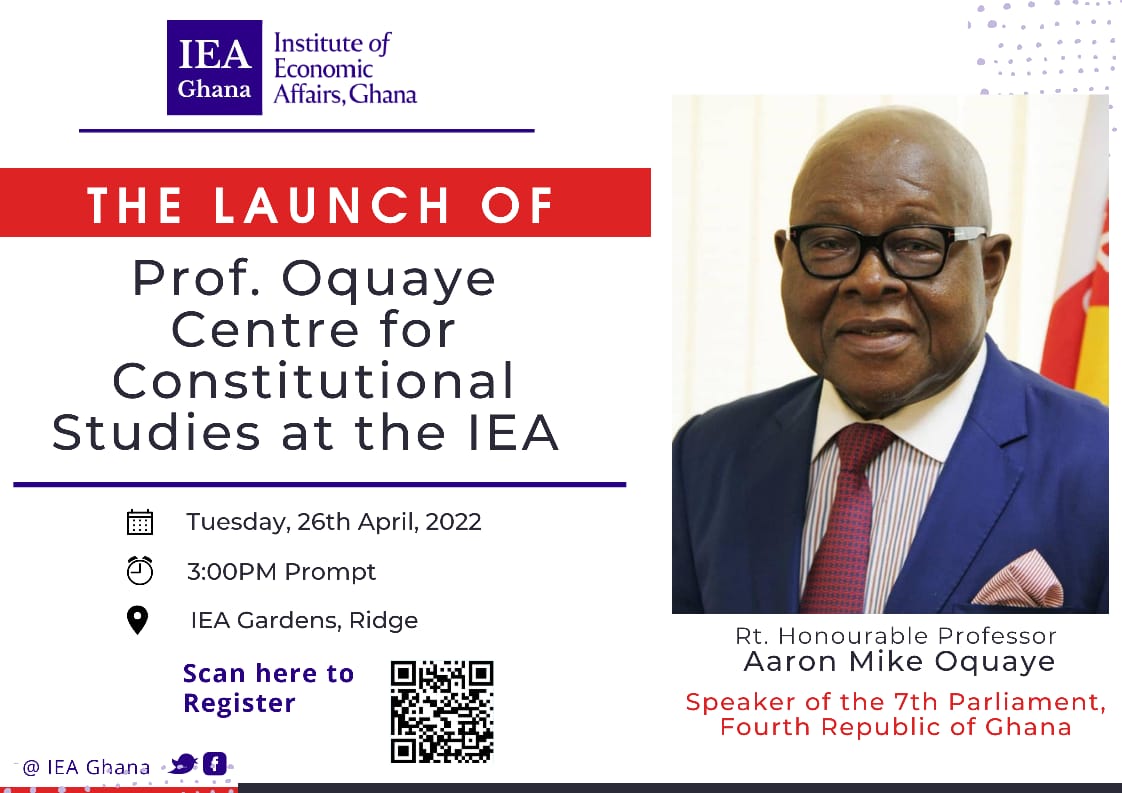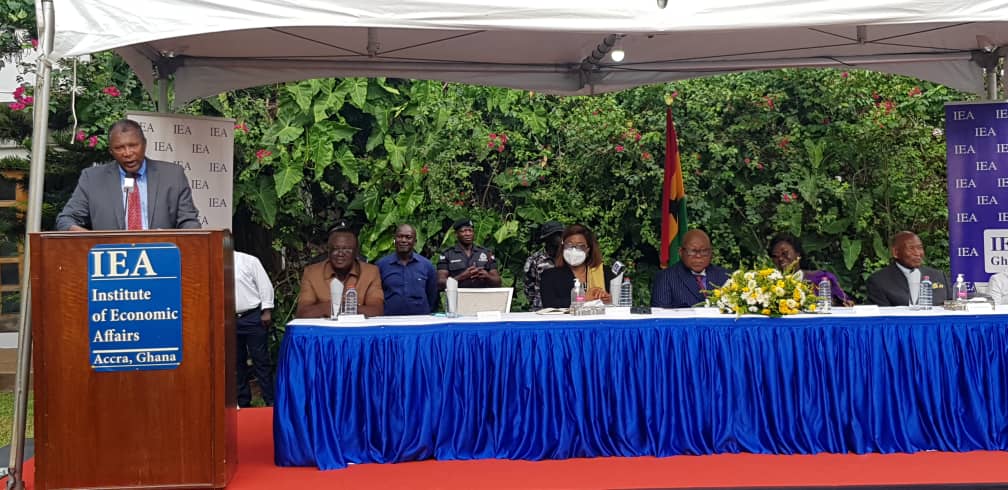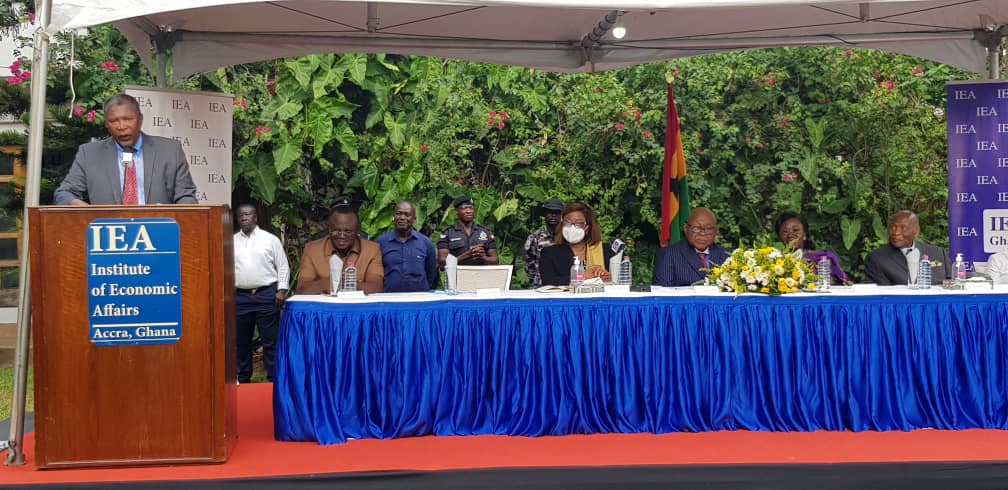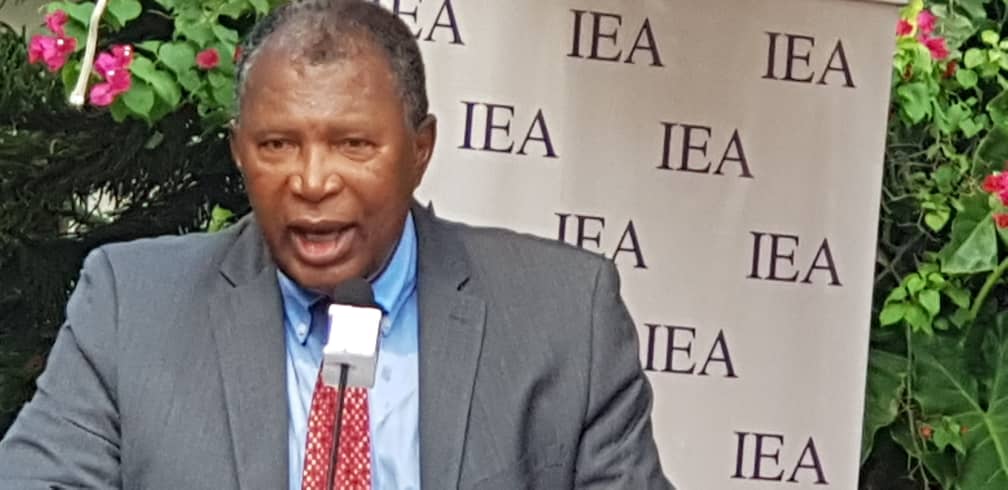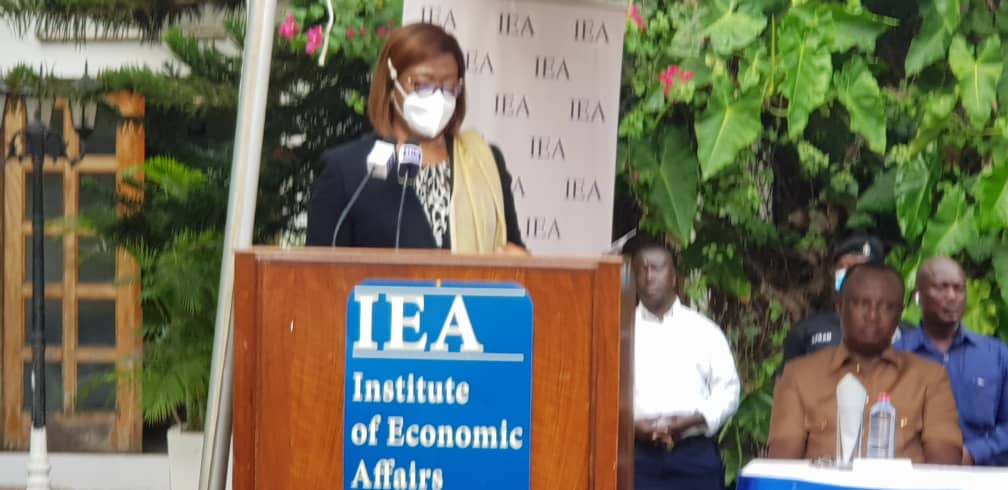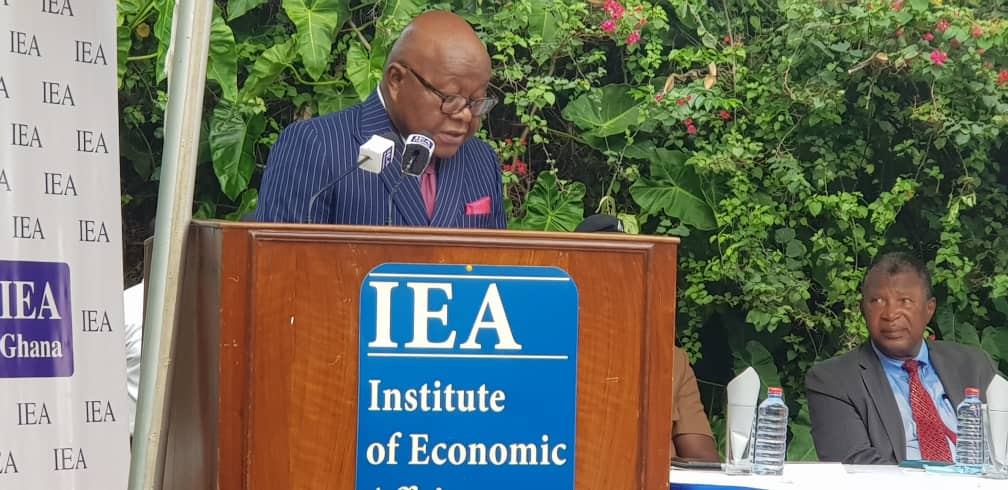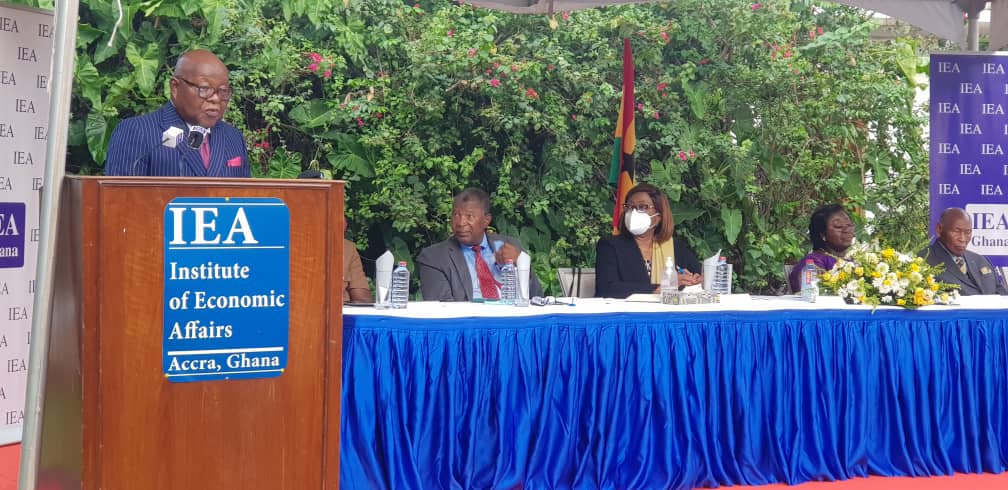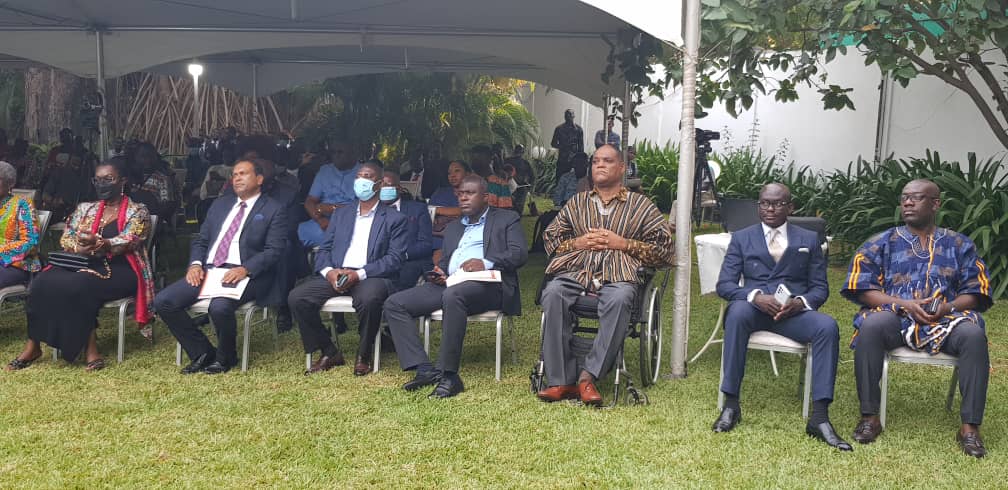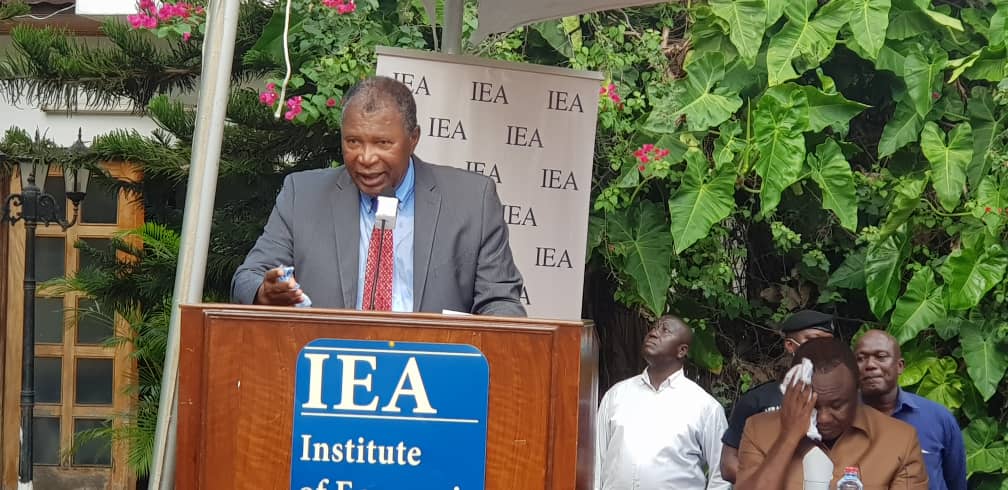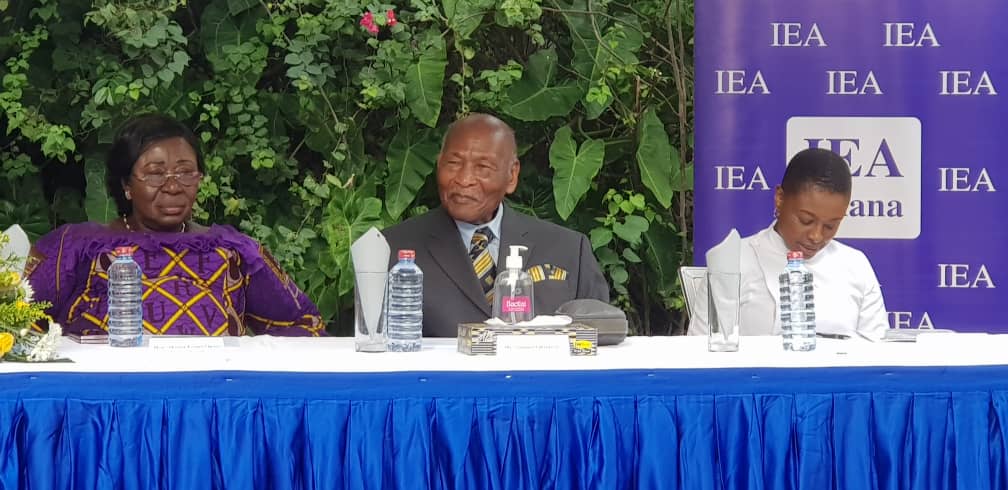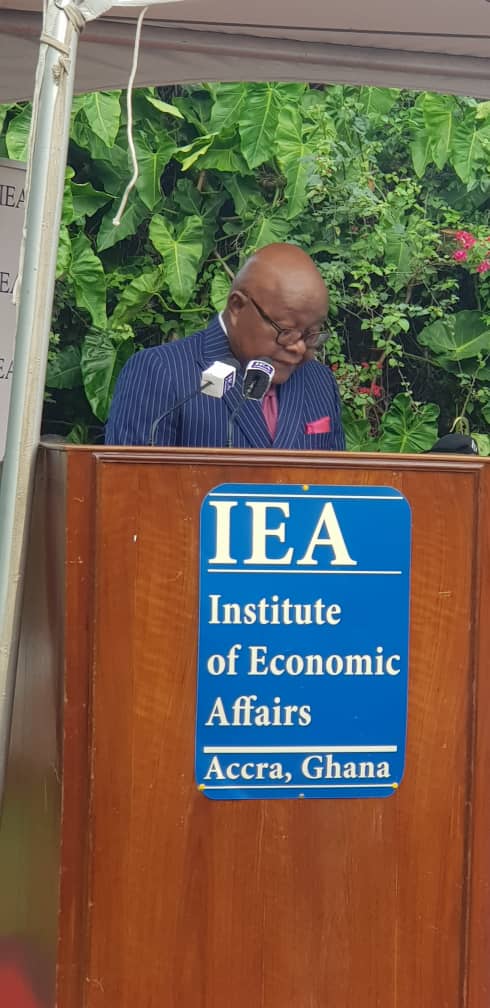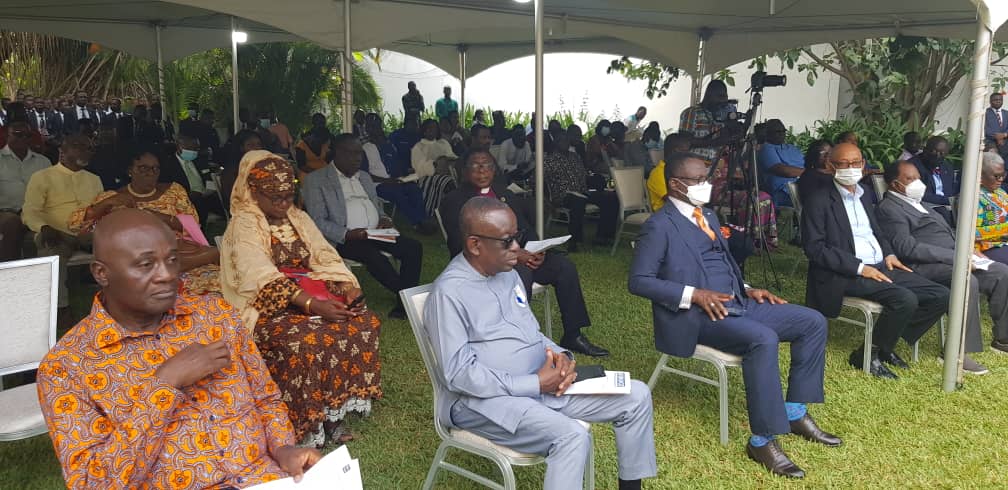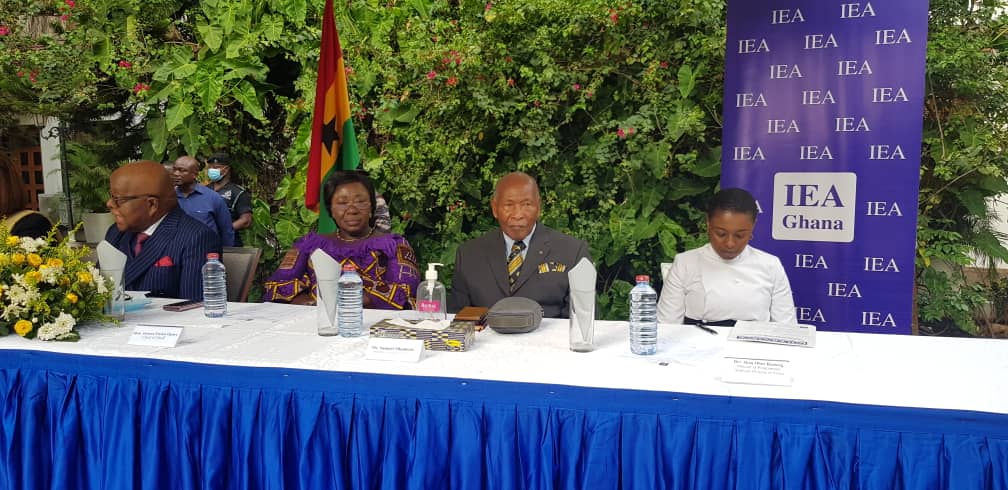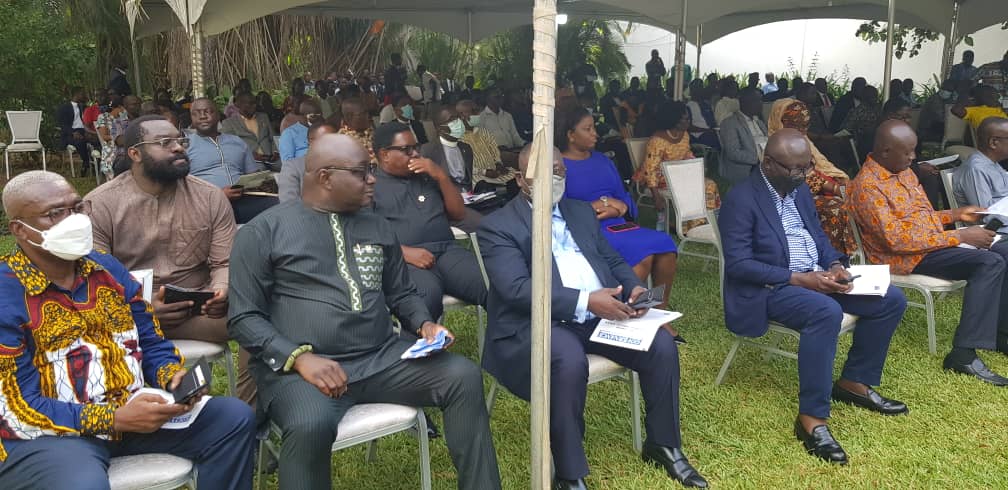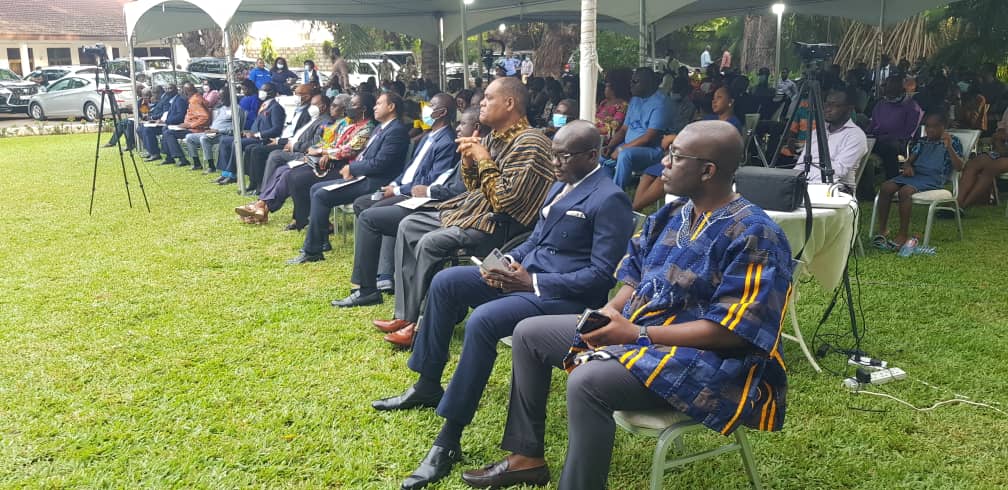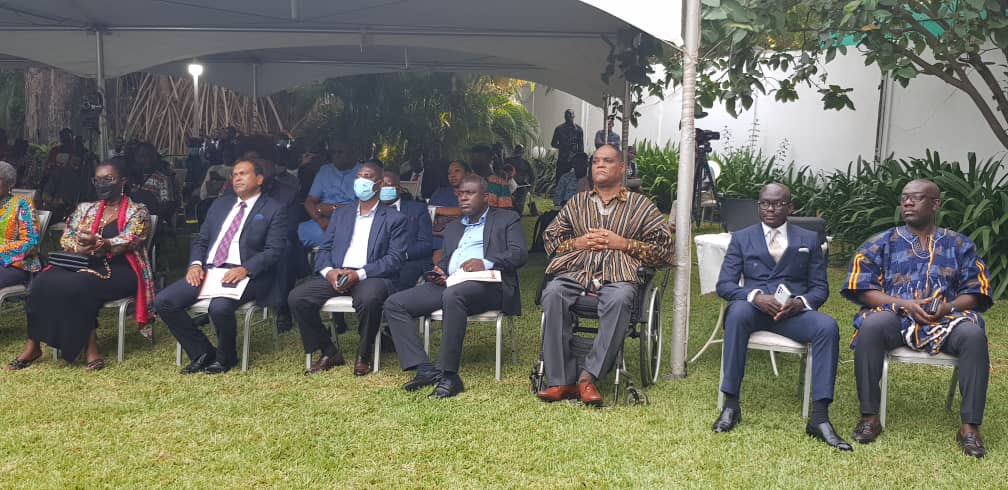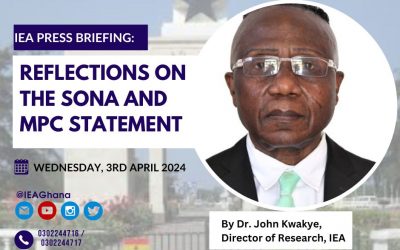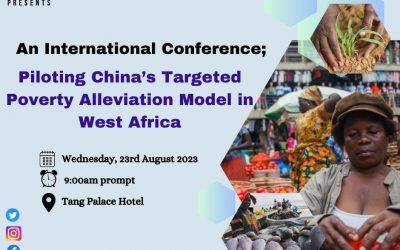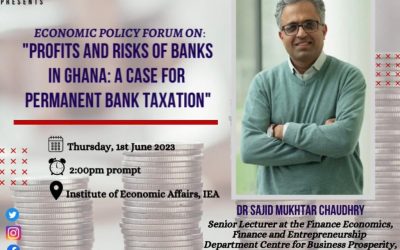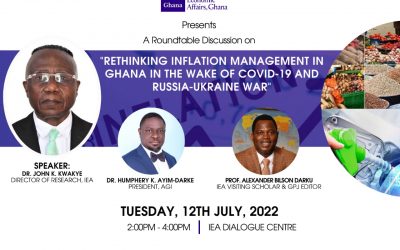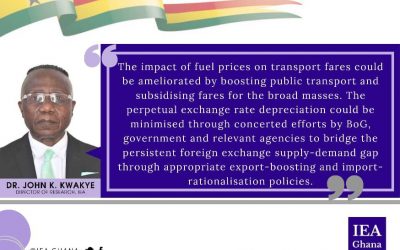On Tuesday, 26th April 2022, the Institute of Economic Affairs launched the Prof Mike Oquaye Centre for Constitutional Studies. The former speaker of parliament delivered a keynote address on the objectives of the centre and the quest for constitutionalism in Ghana
The event was chaired by Her Ladyship Justice Sophia Akuffo (Former Chief Justice of the Republic of Ghana). Commencing with an opening prayer by Rev. Akua Boabema Ofori-Boateng (Director of Programmes, Anglican Diocese of Accra), guests were welcomed and introduced to the chairperson of the occasion by Dr Charles Mensa (Board Chair, IEA). The chairperson, Her Ladyship Sophia Akuffo then accepted her role and took charge of the programme by first reading out a profile of the learned Professor, Rt. Hon Professor Aaron Michael Oquaye (Speaker of the 7th Parliament of the Fourth Republic of Ghana) and inviting him to deliver his keynote address which was on the theme; Reviewing the 1992 Constitution of Ghana and Beyond.
The keynote address focused on constitutionalism and the problems and threats to democracy that Ghana and other countries are facing because constitutionalism has not been internalised. Areas of concern mentioned in the address included,
- The legislature vis-à-vis the Executive power of the President
- The Council of State
- Lands Commission
- Decentralisation
- The Judiciary
- Women
- Political Parties and Elections
- Corruption and
- National Planning
The Institute of Economic Affairs (IEA) has established this Centre within the Institute to help address the issues associated with the aforementioned through a Centre for Constitutional Studies.
“A Constitution is a living document and should progressively satisfy the aspirations of a people in a continuum…. Constitutionalism must beget good governance; and good governance must manifest, reflect, and echo the glory of constitutionalism. This is the symbiotic symmetry which should guide African nations to stability, democracy, and development”
With this in mind, the Prof Mike Oquaye Centre for Constitutional Studies will promote constitutionalism and assist to bring it in all we do, translate the Constitution to the simplest terms and local languages with illustrations. It must be taught in schools, churches, mosques and civil society generally, so that we as Ghanaians live by the tenets therein.
From school children to local government politicians up to the national executive legislators and all, constitutionalism in Ghana and Africa should be studied, disseminated, and applied. It should be the guidepost to every activity and the yardstick to maintain or replace successive governments.
The mandate of the Centre focuses on undertaking a thorough study on proposals for review of the 1992 Constitution of Ghana, broadening the understanding and application of constitutionalism at all levels of governance and daily lives of Ghanaians. Some of the themes to consider include; Theory and Application of the 1992 Constitution of Ghana, The Supreme Court on wheels (Judgements on various decisions by the Supreme Court since 1993 and Constitutional cases in Ghana’s Fourth Republic), Understanding the 1992 Constitution of Ghana (a simple, well explained version of the Constitution in English and other languages), Historical Study (Constitutional Development in Ghana ; Study of Colonial Times, 1st Republic, 2nd Republic , 3rd Republic and the 4th Republic.), Documents and Papers on Constitutional Development in Ghana (deliberations and proceedings of the Commissions or Assemblies which drafted the Constitutions). Finally, to promote good governance in public affairs, civil society, political and economic institutions as part of our national life.
Following the keynote address, the Chairperson, Her Ladyship Justice Sophia Akuffo opened the floor for comments and questions with participants. The participants consisted of key stakeholders from the Executive, Parliament, government agencies, diplomatic corps, the business community, clergy, civil society organizations, political parties, academia, security agencies and the media.
